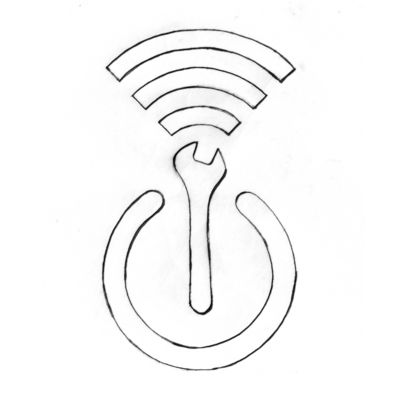A bi-weekly talk show by The Restart Project, plus a monthly documentary series produced by brilliant podcaster Dave Pickering, based on fixing triumphs, heartbreaks and wisdom shared at our community repair events – called Restart Parties – here in London. We go into real depth about good and bad design, obstacles to repair of electronics, emotional aspects of ownership, environmentally irresponsible business models, and the “end of life” of our gadgets. This podcast is for you if you'd like to fix your relationship with electronics. Let’s rethink, restart.
https://therestartproject.org/podcast/
Restart Podcast Ep. 88: Saving reusable products from the shredder, with West London Waste Authority
Have you ever binned or recycled something that was still working, or could have been repaired? The answer is likely, yes. Based on the results of our recent Waste Composition Analysis, conducted with West London Waste Authority (WLWA), it’s a habit that is even more common than we thought.
This March, we spent a week looking at small electrical products brought to the Abbey Road Household Waste and Recycling Centre, and analysed what could have been reused and repaired. In this episode, we tell you more about the results of this study. Ugo also spoke to Emma Beal, Managing Director at WLWA, about the state of recycling and reuse in the UK and what she hopes we can do to improve the e-waste issue.
From novel to normalWhen thinking about how to shift public attitudes to waste, Emma points out that once we work as a whole, change comes quite easily. She cites the non-existent practice of recycling three decades ago compared to how common it is now. As our waste problem grows, she believes that a shift to reuse is inevitable. And when people look back in decades to come, they will be incredulous to the fact that it was not always the norm.
But how do we make it commonplace now? We need to rethink the definition of waste, as Emma states:
“Waste is defined by the person who is not wanting it anymore…the regulation flows from the fact that it has been defined as waste. And it’s only wasted because it’s not wanted, it doesn’t mean it’s not useful, it doesn’t mean it’s not valuable.”
We need to see our stuff as valuable, even once we don’t want it anymore. And this doesn’t just need to be done at council level but also within our communities.
What’s happening in reuse?While we’d love to, we recognise it’s not possible to reuse everything. Repairing, and even just testing products takes time and money, and we also know that there isn’t the demand to reuse everything. For those at the receiving end, though, reuse is incredibly beneficial. We’ve seen this through our work donating laptops and running the Brent Fixing Factory with WLWA. And there are of course also huge environmental benefits.
Emma tells us about their work monitoring the costs and logistics of reuse, in a hope to be able to scale it in a reasonable way. She tells us about some of the other projects that are working to increase reuse such as, Manchester Renew Hub, reuse shops on waste sites, and our very own Fixing Factory. These initiatives are important not only in developing and testing ways to keep things in use, but also to make reuse more visible to the public. This visibility and communication is what Emma believes will really push reuse to become more popular with the public. Once people see how important it is, there’s no stopping it.
Links:
- Read more about our case study: What a waste: our study shows almost half of electricals sent for recycling could be reused
- Fixing Factory
- West London Waste
[Feature image by Mark A Phillips, licensed under CC BY 4.0.]
The post Restart Podcast Ep. 88: Saving reusable products from the shredder, with West London Waste Authority appeared first on The Restart Project.
